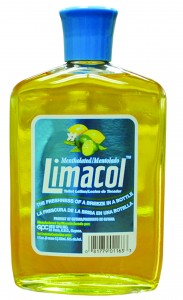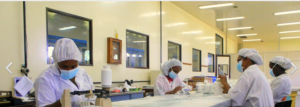30 manufacturing businesses Guyana lost
Dear Editor,
There appears to be much concern and debate about local manufacturing, however it should be noted that local manufacturing decline commenced since the late 80’s; here are a few factories that closed. There may be more that I do not remember or have any knowledge.
1. Amritdhara Manufacturing Co. Ltd.
2. Associated Industry, manufacturer of Tapir vans
3. Baron Foods
4. Besto Feed Factory
5. Briana Manufacturing
6. Continental Biscuits
7. Colgate Palmolive
8. Friendship Industries.
9. Demerara Tobacco Co. Ltd. (factory)
10. Demerara Biscuits
11. Guyana Match Co. Ltd.
12. Guycan (orange juice)
13. GRECO (stereo sets & radios)
14. GRL
15. Gobins Ltd./Buffalo pants
16. Guyana Footwear Ltd.
17. Guyana Furniture Manufacturer
18. Kissoon’s Plywood factory
19. Lysons Garment factory
20. National Paints
21. Neet On Shirt factory
22. Precision Manufacturing
23. Patmar (cultured marble).
24. Rahaman’s Bottling, manufacturer of Red Spot drinks
25. Sanap (sanitary napkins)
26. Squirrel Manufacturing
27. Sirfasa Terrazzo tiles
28. Vinellie/Brown Betty
29. Verdun Soda Factory
30. Wieting & Richter Ltd. Bottling Ltd.
It should be noted that our neighbours in Caricom loved Guyana manufactured Colgate toothpaste. GRL fridges and freezers were a hit in Trinidad & Tobago. I recall friends from Trinidad inquiring about GRL fridges after the closure of GRL.
Now there is concern about imported items sold locally that Guyana once produced and can produce. I am sure there are many local businessmen and functionaries from past PNC and PPP-Civic government who will remember Captain Fedna Stoll trekking from office to office trying unsuccessfully to get support and funding for his dehydrated fruits and vegetables. Captain Fedna Stoll obtained several patent for his products but no support from government or local businesses. I suspected he died a tired and sad man.
Captain Fedna Stoll is the inventor of a unique method of food preservation which makes it possible for the first time to enjoy all-year-round tropical fruit flavors and vegetable products. The distinction of the Stoll technology is its 100% natural, additive-free, preservative-free process and results. Natural and pure melon powder, orange powder, pineapple powder, banana powder – to name a few are among the over 120 TropiTaste recipe creations of Fedna Stoll. Among the highlights of the Stoll creations is a unique line of instant tropical fruit-flavored cereals which require no cooking whatsoever – simply add water or milk, hot, warm or cold – and the full zest of tropical fruit flavors emerge for palatable enjoyment. Read more about Captain Fedna Stoll here http://www.tropitaste.com/captain-stoll.html
Hemwant Persaud





